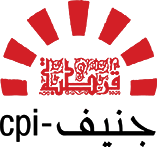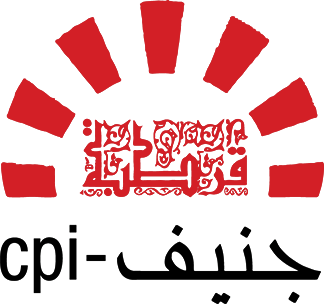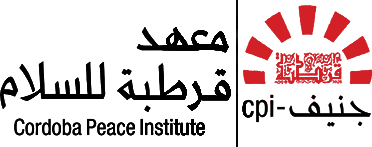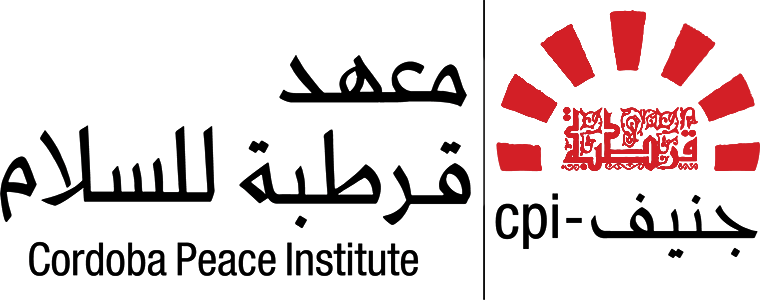The Cordoba Update 02-15.12.2015

| In line with the programmes and projects funded by partners of the Cordoba Foundation of Geneva, updates and information are included under the following geographical regions and themes: | |
North Africa:
|
Sahel region:
|
Middle East:
|
Cross-regional:
|
ISLAMIST-SECULAR RELATIONS /
RELATIONS ENTRE SÉCULIERS ET ISLAMISTES
Tunisie, 11 décembre 2015 : Merzouk Quitte le Secrétariat Général de Nidaa Tounes
Mouhcen Merzouk a annoncé vendredi qu’il démissionnait du secrétariat général de Nidaa Tounes, tout en restant membre de ce parti, dont il a été l’un des principaux fondateurs. Cela soulève la possibilité d’un schisme à l’intérieur du parti tunisien, après des mois de dissensions internes, des démissions en masse et des revendications de prise de pouvoir au sein du parti. Merzouk a estimé « irréaliste et irréalisable » la proposition de la formation d’un comité de 13 membres sélectionnés par le Président Béji Caïd Essebsi, afin de faciliter une médiation entre les deux principaux groupes au sein de la crise du Nidaa Tounes (voir Cordoba Update, 17.11-01.12.2015). Il l’a qualifiée de « demi-mesure » dès lors qu’elle « ne contribue pas à la résolution de la crise, mais concourt à son institutionnalisation ». Le conflit entre Mouhcen Merzouk et Hafedh Caïd Essebsi, fils du président, s’est cristallisé sur l’accusation que ce dernier chercherait une prise de pouvoir dans le parti.
Selon la presse, Merzouk a indiqué qu’il pourrait chercher à former un nouveau parti politique, peut-être en coopération avec ses partisans au sein de Nidaa Tounes. Le mois passé, 32 parlementaires du parti – plus d’un quart de la participation totale du Nidaa Tounes – avaient démissionné de leurs positions, à cause de la dispute dans le parti, dans laquelle ils soutenaient Merzouk.
Une démission de masse laisserait Ennahda – auparavant un membre minoritaire de la coalition politique – avec une majorité dans le gouvernement.
Liens pour plus d’informations :
http://kapitalis.com/tunisie/2015/12/13/mohsen-marzouk-demissionne-du-secretariat-general-de-nidaa/
http://www.lapresse.tn/14122015/107658/le-pouvoir-va-t-il-changer-de-main
http://www.middleeasteye.net/news/general-secretary-tunisia-s-leading-party-says-project-finished
TRANSITION AND POLITICAL PARTICIPATION /
TRANSITION ET PARTICIPATION POLITIQUE
Egypt, 12.12.2015: Security Authorities Try to Create a Pro-State Parliament Bloc
Parliamentarians in the recently-elected House of Representatives have expressed doubts over a proposed pro-state bloc that seeks a majority in the chamber as rumors grow of security interventions obliging MPs to join the alliance. One member from the Wafd Party, Badawi Abdel-Latif, said that he was pressed by the state-security agency to join the coalition. However, Ahmed Ezz al-Arab, Wafd Party deputy chairman welcomed “allying with any parliament coalition that supports the state and President Abdel Fattah al-Sisi”. Meanwhile, the (liberal) Free Egyptians Party announced that it had declined to join the bloc. Finally, Abdel Ghaffar Shokr, the president of the (leftist) Popular Socialist Alliance Party, said negotiations with the Egyptian Democratic Party, Tagammu Party, and independent MPs were ongoing to form a parliamentary bloc of 20 MPs in a parliament made up of 596 seats.
Links for more information:
http://www.egyptindependent.com/news/unease-security-intervention-mar-proposed-pro-state-parliament-bloc
http://www.egyptindependent.com/news/socialist-parties-seek-parliamentary-bloc
http://english.ahram.org.eg/NewsContent/1/164/173243/Egypt/Egypt-Elections-/Free-Egyptians-Party-refuses-to-join
Egypt, 12.10.2015: 625 Torture Cases in Egypt from January to November 2015
In a press conference on Human Rights Day, many human rights organizations condemned increasing violations by the Ministry of Interior in a manner that indicates they have been given free rein to abuse citizens using extralegal practices such as torture, enforced disappearance, and other arbitrary measures. According to the Stop Forced Disappearances campaign, there have been 125 cases of forced disappearances cases across Egypt in October and November 2015. The human rights organizations documented 625 torture cases in Egyptian prisons, including 51 cases of collective torture, between the period of January and November 2015. The press conference comes as a response to Abdel Fattah al-Sisi’s insistence that incidents of torture in police stations are rogue acts committed by individuals, and do not represent state policies. During a seminar at a Cairo police academy, Abdel Fattah al-Sisi praised the performance of security forces and said the police play a crucial role in ensuring the stability of the country. He said individual incidents of police violations should not prompt blaming of the whole security apparatus The Ministry of Foreign Affairs also issued a statement on the occasion of human rights day, saying Egypt is fully committed to the International Declaration of Human Rights.
Links for more information:
http://eipr.org/en/pressrelease/2015/12/10/2475
http://www.dailynewsegypt.com/2015/12/09/125-forced-disappearances-in-october-november-report/
http://english.ahram.org.eg/NewsContent/1/64/172485/Egypt/Politics-/Egypts-Sisi-Individual-police-violations
https://www.facebook.com/MFAEgyptEnglish/posts/1521559698171614
Libya, 13 December 2015: Libya Developments: Libya-Libya Dialogue, UN-Sponsored Agreement, Leon Investigation and Rome Conference.
In what is being called the Libya-Libya dialogue, members of the opposing Tripoli-based General National Congress (GNC) and Tobruk-based House of Representatives (HoR) met in Tunis on 6 December. Sadek Aoudh, vice-president of the GNC and Fathi Amich of the HoR, announced that they had reached an agreement on increased cooperation in “launching the basis of a transparent cooperation between the two sides in order to reach a political agreement ensuring the formation of a national unity government.” The text of the agreement emphasises the lack of foreign interference or preconditions in the meeting, and lays out a plan for the designation of a prime minister and two deputies within two weeks, by a group of five MPs from each government. The agreement also stipulates a return to the 1952 Constitution, with some amendments by a group of ten MPs from each government. This aims to ensure transitional governance until legislative elections can be held within two years.
Both Aoudh and Amich called for United Nations and international support for the initiative, however so far it has been met with mixed reactions. It was largely hailed in many parts of Libya, and initially welcomed in Tunis and Algeria. The Organisation of Islamic Cooperation also supported the draft agreement. It was not, however, welcomed by ambassadors and special envoys of France, Germany, Italy, Spain, the United Kingdom, the United States, and the head of the EU Delegation to Libya, who warned against this initiative and insisted that the UN-brokered peace deal is the “only way forward” for the nation. By taking this “hardnosed stance the UN could be seen to be moving towards recognising its own Libyan government… a move that could embolden locally legitimate hardliners and even alienate potential supporters of the deal,” said Jason Pack, a researcher of Libyan history, on Libya-Analysis.com. Indeed, the position triggered frustration among Libyans who welcomed the Tunis draft agreement. A block of 82 GNC MPs, Libya Dawn armed group, the Fatwa House led by Sheikh Sadek Al Gharyani, the Salvation Front party, and the Muslim Brotherhood (not its political party) all support the draft agreement. The GNC and the HoR failed to then hold sessions to pass the draft agreement, however, Nouri Bousehmin, speaker of the GNC, and Salah Ghouila, head of the HoR, are due to meet on 15 December; apparently in an effort to lend the Libyan-Libyan draft agreement more support.
UNSMIL’s political dialogue continues meanwhile. On 12 December, representatives of Libya’s rival parliaments – who did not take part in the Libyan-Libyan negotiations – agreed to sign a UN-sponsored agreement on 16 December. This will lay out the formation of a national unity government, which will be the first unified Libyan administration since its break-up in August 2014. The UN-sponsored document envisages a “multi-member presidential council to govern the country, consisting of a prime minister, five deputy premiers and three senior ministers,” that will give “more representation to tribal and regional political actors across the country.”
Despite the international outcry over the Libya-Libya dialogue and agreement, and the apparent GNC and HoR preference for the UN-sponsored negotiations, some sections of Libyan society may be cautious of UN involvement, if they no longer perceive the organisation as a neutral arbitrator. Both peace initiatives run parallel to the recently-launched investigation into the former Special Representative of the Secretary-General (SRSG), and Head of the United Nations Support Mission in Libya (UNSMIL), Bernardino Leon, who is under investigation for his relationship with the United Arab Emirates, which supports the HoR over the GNC. Some parties see Leon’s acceptance of a job offer from the Emirati government as a blatant confirmation of his political bias, and so the scandal may severely undermine UNSMIL’s mediation efforts.
On 13 December, Italy hosted international talks on the topic of the Libyan peace process; envoys included the US Secretary of State John Kerry, UNSMIL envoy Martin Kobler, 18 European and Arab ministers, and representatives of the GNC and HoR. Envoys expressed support for the national unity government, pledging support to help restore stability in the country. Along with the Italian Foreign Minister, Kerry and Kobler voiced optimism for the expected 16 December signing, but stressed that no authority would be recognised outside of the national unity government. According to the Libya Herald, they emphasised that the Central Bank of Libya, the National Oil Corporation and the Libyan Investment Authority “must function under the stewardship of a Government of National Accord”. The International Crisis Group (ICG) issued a statement on the “Political Deal for Libya” prior to the commencement of the Italy conference. The communique expressed support for the intensive diplomatic efforts exerted to bring Libya together through inclusive political participation, but also urged caution. It warned against the “risks associated with a precipitous rush to anoint a government without consolidating domestic support or addressing urgent security concerns,” further noting that prematurely ending national negotiations could “strengthen hardliners.” Importantly, the ICG statement points out that “granting recognition to a government that has insufficient backing will condemn it to irrelevance.”
Links for more information:
http://www.middleeasteye.net/news/us-eu-capitals-say-un-only-way-forward-libya-peace-deal
https://www.facebook.com/EUinLibya/posts/929771757105537
http://www.middleeasteye.net/news/libya-rivals-pledge-sign-peace-accord-next-week
http://www.libya-analysis.com/
http://arabi21.com/story/878093/
https://www.libyaherald.com/2015/12/13/international-community-endorses-serraj-unity-government/
http://www.crisisgroup.org/en/publication-type/media-releases/2015/middle-east-north-africa/statement-on-a-political-deal
http://www.middleeasteye.net/news/warring-libyan-factions-reach-preliminary-peace-deal-officials
https://www.washingtonpost.com/world/middle_east/libyan-american-group-says-un-begins-investigating-ex-envoy
https://www.stratfor.com/sample/analysis/bid-upset-foreign-influence-libya
RELATIONS BETWEEN COMMUNITIES OF DIFFERENT ETHNIC, CULTURAL AND RELIGIOUS AFFILIATION /
RELATIONS ENTRE COMMUNAUTÉS DE DIFFÉRENTES AFFILIATIONS ETHNIQUES, CULTURELLES ET RELIGIEUSES
Liban, 15.12.2015 : Un Président avant la Fin de l’Année ?
La coalition du 14 mars va présenter un nouveau candidat à la prochaine session du parlement appelée à se tenir mercredi 16 décembre prochain. En effet, après 18 mois de vacance présidentielle et 32 sessions parlementaires échouant à élire un président, il semblerait que les développements régionaux aient poussé le 14 mars à rechercher un candidat parmi leurs adversaires du 8 mars en la personne de M. Sleiman Frangieh, chef du parti maronite Marada. Les explications pour ce dernier revirement sont nombreuses, diverses et quelquefois totalement paradoxales.
Les conditions pour un tel compromis auraient été réunies lors de la conférence pour la Syrie à Vienne le 14 novembre passé. A cette occasion, l’Arabie saoudite et l’Iran auraient pu se mettre d’accord sur la nécessité de préserver le Liban de l’instabilité régionale et ainsi sur la nécessité d’en finir avec le statu quo. Après quoi, le 17 mars, Saad Hariri a rencontré Sleiman Frangieh à Paris lors d’une entrevue discrète.
La coalition du 14 mars a dû justifier son choix de proposer un ami intime du président syrien Bachar al-Assad comme candidat à la présidentielle libanaise. Ils soutiennent leur position en affirmant que l’heure du retrait de M. al-Assad est venue (politiquement via la phase de transition ou militairement) et qu’il est donc nécessaire de rassurer ses alliés au Liban. Ainsi, M. Frangieh pourrait, selon cette théorie, avoir besoin de la protection politique que lui apporterait la présidence.
Une théorie totalement paradoxale qui courrait parmi les rangs du 8 mars serait qu’avec l’arrivée des Russes en Syrie, il serait devenu clair pour MM. Hariri et Jumblatt que la balance penchait pour les alliés de M. al-Assad et qu’il leur fallait mieux alors choisir le moindre mal, c’est-à-dire proposer M. Frangieh pour éviter M. Aoun, candidat du 8 mars.
A Bkerké, au siège du patriarcat maronite, il semblerait que la pression soit montée pour faire en sorte que les quatre forces maronites se mettent d’accord sur le candidat, qui sera forcément maronite selon les accords de Taef. Les Forces libanaises et les Kataëb s’accordent sur la nécessité de sortir du blocage via une personnalité de compromis, mais émettent des réserves sur le choix de M. Frangieh, notamment à cause de sa position sur le conflit syrien et sur la question des armes du Hezbollah. Quant au Courant patriotique libre, il confirme son candidat, M. Michel Aoun, candidat soutenu par le Hezbollah.
La candidature de M. Frangieh a remporté le soutien de Washington, Moscou, Paris et Riyad. Alors qu’il semblait après la conférence de Vienne que Téhéran soutenait cette initiative ou, en tout cas, ne s’y opposait pas, sa position aurait changé et serait explicitée par ses alliés du Hezbollah qui confirmerait M. Aoun comme son candidat. Ce revirement pourrait être expliqué par la crainte de l’Iran de voir son influence se réduire dans la région, et notamment en Syrie où les Russes semblent vouloir se débarrasser de la domination iranienne depuis leur arrivée. Une source mentionne également un marché américano-russe aux dépens des intérêts de l’Iran en Syrie et en Irak qui laisserait Téhéran sans rôle régional majeur.
Avec tous ces différents intérêts et ces acteurs locaux, régionaux et internationaux qui se mêlent dans la question de la présidence libanaise, il est difficile d’affirmer que les Libanais auront un président avant la fin de l’année.
Liens pour plus d’informations :
http://www.lorientlejour.com/article/960314/presidentielle-le-pari-du-deblocage-pese-sur-bkerke
http://www.lorientlejour.com/article/960316/le-compromis-frangie-saborde-par-les-craintes-iraniennes
http://www.al-monitor.com/pulse/originals/2015/12/lebanon-president-elections-hariri-jumblatt-franjieh
http://www.alquds.co.uk/?p=437368
http://www.imlebanon.org/2015/11/23/jama-jarah-frangieh-meet-hariri-aoun-presidency-assad-syria/
http://www.alaraby.co.uk/english/news/2015/12/10/us-backs-ally-of-assad-to-be-lebanese-president
http://www.alaraby.co.uk/english/news/2015/12/6/lebanon-future-movement-warns-of-a-civil-war
RELATIONS BETWEEN MUSLIM COMMUNITIES WITH DIFFERENT RELIGIOUS REFERENCES /
RELATIONS ENTRE LES COMMUNAUTÉS MUSULMANES DE DIFFÉRENTES AFFILIATIONS RELIGIEUSES
Yemen, 14 December 2015: Yemen Ceasefire and Peace Talks in Switzerland
A week-long ceasefire, set to begin at midnight on Monday 14 December, ahead of United Nations-brokered talks between parties in the Yemen conflict, was pushed to midday on 15 December. The so-called “Arab Coalition” led by Saudi Arabia, postponed the ceasefire when a Saudi special forces commander and Emirati officer were killed by Houthi shelling near Taiz in western Yemen. One source reported that up to 152 coalition forces were killed in the same bombardment, illustrating the very heavy casualties on both sides of the conflict. The UN estimates that more than 5,800 have been killed so far, about half of which are civilian casualties. An additional 27,000 have been wounded since March, with medical and humanitarian organisations warning the international community of the severe shortage in basic supplies including vital medicine and food. Other estimates say approximately 80 per cent of the Yemeni population requires humanitarian aid.
The peace talks in Switzerland are the latest attempt at an international intervention in the conflict that is in its tenth month. They are set to last seven days, and the truce is expected to endure the length of the negotiations between three delegations, from 15 to 21 December. The UN envoy to Yemen, Ismail Ould Cheikh Ahmed, has said that delegations will include representatives of President Abd Rabbuh Mansour Hadi’s government, a delegation of the Houthi rebel militia, and officials from the General People’s Congress, who are loyalists of former president Ali Abdullah Saleh.
Links for more information:
http://arabi21.com/story/878256
http://gulfnews.com/news/gulf/yemen/yemen-ceasefire-awaited-on-eve-of-switzerland-talks
http://arabi21.com/story/878229
http://www.middleeasteye.net/news/yemen-houthis-saudi-arabia-peace-ceasefire
http://www.defensenews.com/story/defense/2015/12/14/united-arab-emirates/
VIOLENT EXTREMISM AND THE WAR ON TERROR /
EXTRÉMISME VIOLENT ET LA GUERRE CONTRE LA TERREUR
Cross-regional: 14.12.2015: France: Islamic State Moving toward Libya’s Oil
After French planes carried out surveillance flights over Libya last week, French Defence Minister Jean-Yves Le Drian said that the so-called ‘Islamic State’ (IS) is spreading from its stronghold on the Libyan coast to the interior of the country, with the aim of gaining access to oil wells. Libya has 48 billion barrels of proven crude oil reserves, the largest in Africa and ninth biggest in the world. On 13 December 2015, Global powers backed the formation of a national unity government in Libya, pledging economic and security support to help stabilize the chaotic North African country where IS militants have a foothold.
Links for more information:
http://english.ahram.org.eg/NewsContent/2/8/173464/World/Region/ISIS-eyes-oil-as-it-advances-to-Libyan-interior
http://www.ibtimes.com/isis-libya-oil-used-islamic-state-may-expand-foothold-north-african-country
http://www.france24.com/en/20151214-france-warns-islamic-state-isis-push-grab-libya-oil-fields
http://www.reuters.com/article/us-libya-security
Egypt, 14.12.2015: The Egypt-led Committee: no Evidence of Terrorist Attack in Russian Plane Crash
The Egypt-led committee tasked with investigating the causes of the Russian airliner crash is yet to prove the existence of “unlawful interference or a terrorist act”, said Ayman al-Moqadem, the leading investigator in the probe. He also said, in a statement by Civil Aviation Ministry, that the committee completed a preliminary report into the causes of the incident and sent it to all accredited representatives from countries that had the right to participate in the investigation. The report was also sent to the International Civil Aviation Organization (ICAO). Egypt also said it would hire a foreign company to help improve the country’s airport security. Days after the crash, Western and Russian intelligence agencies have indicated they believe an improvised explosive was smuggled aboard the plane.
Links for more information:
http://en.aswatmasriya.com/news/view.aspx?id=d7b8b41d-60b9-4421-864a-85c016c6e30a
http://www.madamasr.com/news/aviation-ministry-findings-russian-plane-crash-show-no-indications-terrorism
http://www.reuters.com/article/us-egypt-crash-security
http://www.theguardian.com/world/2015/dec/14/no-evidence-of-terrorism-sinai-air-crash-egypt-says
Mauritanie, 26.11.15: Le Gouvernement Propose des Financements aux Anciens Détenus Salafis
Au lendemain des attaques de Paris, le gouvernement mauritanien, par l’entremise du directeur de la sûreté de l’Etat (police politique, également en charge de la lutte contre le terrorisme), a annoncé mercredi 25 novembre la convocation des anciens détenus salafis à une rencontre dans les locaux de la police. L’objectif était de discuter des modalités de la mise en œuvre de la seconde phase de la feuille de route issue du dialogue de 2010 entre le pouvoir et les ex-détenus salafis, portant sur leur réinsertion dans la vie active dans le pays. Par cette démarche, le gouvernement a signifié son attachement aux résultats du dialogue ayant conduit à la libération d’une quarantaine de salafis, dont certains étaient lourdement condamnés. Ayant effectué des « mourajâat » (révisions) au sujet de certaines notions de leur doctrine, notamment ayant renoncé au recours à la violence et reniant ainsi les agissements des mouvements violents à référence religieuse, ces ex-détenus avaient reçu la promesse d’être réinsérés dans la vie active. Depuis 2010, les oulémas (savants religieux) qui avaient supervisé ce dialogue et assuré la médiation entre les ex-détenus et le gouvernement n’ont cessé d’être interpellés sur les suites de ce processus, par les ex-détenus eux-mêmes et notamment par certains pans influents du clergé religieux conservateur, largement soutenu par une partie importante de la société. En effet, une part considérable de la société appelle à un dialogue avec les jeunes mauritaniens engagés dans « l’aventure jihadiste », au lieu de l’affrontement militaire ou la répression. Selon les adhérents à cette position, c’est de la répression féroce contre les islamistes en 2003 qu’est née la radicalisation extrême de certains jeunes, ce qui les a poussés à se joindre aux organisations dans les pays limitrophes (Algérie et Mali) ou ailleurs (Afghanistan, Pakistan et Soudan, entre autres).
Parmi les options proposées par des personnes anciennement affiliées à divers mouvements violents à référence religieuse, notamment Al-Qaida, le Groupe salafiste pour la prédication et le combat (GSPC), l’AQMI et le Mouvement pour l’unicité et le jihad en Afrique de l’Ouest (MUJAO), il a été question d’allouer des crédits financiers aux anciens détenus leur permettant d’exercer des activités commerciales ou d’entreprenariat. Le gouvernement semble avoir entériné cette proposition. Une seconde rencontre devrait avoir lieu quand une réponse définitive sera arrêtée par le gouvernement sur les modalités à mettre en place.
Les anciens détenus concernés par ce processus de réinsertion avaient été impliqués dans plusieurs actions contre l’armée mauritanienne (Lemgheity en 2003, Ghallawiya en 2007 et Tourine en 2008, l’enlèvement d’un gendarme en 2012), ou contre des cibles occidentales installées ou de passage en Mauritanie (assassinat d’un humanitaire américain, l’enlèvement d’un couple italien et le rapt d’un groupe d’humanitaires espagnols, en 2009). D’autres avaient participé à des actions de recrutement, d’encadrement, de filature pour des fins d’enlèvement et de collecte d’informations en appui aux actions des mouvements violents à référence religieuse actifs au Maghreb et au Sahel. La plupart de toutes ces actions avait été spécialement exécutée pour le compte de la « katiba des Moulathamine », alors affiliée à l’AQMI et que dirigeait Mokhtar Belmokhtar, actuel chef de la « katiba des Mourabitounes », entrée en dissidence contre l’AQMI en 2013. D’autres parmi eux avaient été impliqués dans des opérations violentes en Algérie, au Mali et au Niger pour le compte d’autres bataillons, notamment celui d’« Al-Fourghane » que dirigeait Abdel Hamid Abu Zaid, tué en 2012 au Mali par l’opération Serval.
Avec l’émergence fulgurante de l’organisation du soi-disant Etat islamique (EI) et ses tentatives de supplanter Al-Qaida en Afrique du Nord et au Sahel, le gouvernement mauritanien, engagé dans une logique d’anticipation, pourrait vouloir atteindre deux objectifs immédiats. D’abord, mettre à jour la liste des ex-détenus qui ont tenu à leur promesse de renier l’action violente et qui demeurent encore dans le pays. Ensuite, mettre tous les moyens en œuvre pour éviter une éventuelle récupération par l’EI de ces anciennes recrues des mouvements violents à référence religieuse, désœuvrées et attendant depuis 2010 que l’Etat respecte sa promesse de leur offrir l’opportunité de s’engager pleinement dans une nouvelle vie.
Pour le premier objectif, seuls trois des anciens détenus libérés ont repris le chemin vers les bastions des mouvements violents au nord Mali. Aux dernières nouvelles, deux d’entre eux auraient péri dans diverses opérations menées par Serval. Pour le second, la balle est dans le camp du gouvernement, seul maître de sa stratégie.
Liens pour plus d’informations :
http://www.mondafrique.com/la-police-mauritanienne-veut-aider-les-salafistes/
Saudi Arabia, 14 December 2015: The “Islamic World’s” Anti-Terrorist Military Coalition.
The Saudi Defence Minister and Deputy Crown Prince, Mohammed bin Salman al Saud, has announced the formation of a 35-state ‘Islamic’ military coalition that will target and combat “all terrorist organisations in the Islamic world”, specifically mentioning extremists in Afghanistan, Egypt, Iraq, Libya and Syria. Three of these countries: Afghanistan, Iraq and Syria were notably excluded from the coalition, as was Iran. The coalition is made up of Saudi Arabia, Bahrain, Bangladesh, Benin, Chad, Comoros, Djibouti, Egypt, Gabon, Guinea, Ivory Coast, Jordan, Kuwait, Lebanon, Libya, Malaysia, Maldives, Mali, Morocco, Mauritania, Niger, Nigeria, Pakistan, the Palestinians, Qatar, Senegal, Sierra Leone, Somalia, Sudan, Togo, Tunisia, Turkey, United Arab Emirates and Yemen. Its headquarters, and Joint Operations Centre for coordinating military engagements, will be in the Saudi capital, Riyadh.
This announcement was welcomed by the US Defence Secretary, who told journalists that the coalition is “very much in line with something we’ve been urging for quite some time, which is greater involvement in the campaign to combat ISIL by Sunni Arab countries.” The planned coalition will also encourage greater security ties with key Western actors, including defence companies – as Sasa Post recently highlighted: 2015 trade relations between members of the Gulf Cooperation Council and Western security industries have so far been profitable.
From the point of view of some observers, bin Salman’s announcement raises important questions on the coalition’s mandate, and its potential outcomes in communities where Muslims live. One question is on the exact definition of “terrorist organisations.” Recent Saudi legislation has “branded peaceful opposition activists and reformers, whether online or in the street, as suspected “terrorists” and a security risk to the state,” according to the BBC. Furthermore, Amnesty International has expressed concerns of the coalition’s effect of further restricting human rights. Al Araby al Jadeed has highlighted that Saudi Arabic considers Hezbollah a terrorist organisation, despite which, Lebanon has joined the coalition. The decision could have far-reaching implications on relations between communities with different religious references – in Lebanon as well as in other countries, including Saudi Arabia itself.
Another question is the ramifications the coalition could have on extremist discourse, in the context of what may be perceived as an “Islamic War on Terror”. Notably, the Saudi Press Agency (SPA) stated that the military alliance arises from provisions laid out by the Organization of Islamic Cooperation “Convention on Combating Terrorism”, in the capacity to defend the Muslim ummah (nation) from groups that “terrorise the innocent”. The SPA made another statement to the effect that the formation of the coalition “emerged from the divine guidance of the Holy Qur’an and the teachings of Islamic shari’a… and its provisions which negate terrorism in all its forms…” This statement highlights the coalition’s theological mandate; by which it affords itself with the ‘correct interpretation’ of Islamic laws. One concern is that broad, international military action against Muslims may produce widespread disillusionment with ‘institutionalised’ Islam within each coalition nation, and ultimately benefit extremist discourse as an alternative to state-sponsored religious narratives.
Links for more information:
http://www.bbc.com/news/world-middle-east
http://www.sasapost.com/gulf-countries-in-2015/
http://www.alarabiya.net/ar/saudi-today/2015/12/15/السعودية-تشكل-تحالفاً-إسلامياً-عسكرياً-لمحاربة-الإرهاب
http://arabi21.com/story/878247/
http://www.alaraby.co.uk/politics/2015/12/15/لبنان-جزء-من-التحالف-الإسلامي–ماذا-عن-حزب-الله
http://www.oic-oci.org/arabic/conventions/terrorism
Tunisia, 08 December 2015: Imams to reclaim Islam in the name of moderation.
Following three major attacks in Tunisia this year – on the Bardo National Museum in March, at a tourist resort in Sousse in June, and the latest suicide bombing in downtown Tunis – the government has responded to the threat of attacks from violent religious extremists with a security crackdown. These reactionary decisions have taken centre stage in the media but, according to al Monitor, the Ministry of Religious Affairs is also implementing a long-term strategy to “take back Islam from extremists and enlighten its youth through social media,” in cooperation with moderate imams from all over the country. This outreach programme will be conducted through platforms that are popular among contemporary youth, including Twitter and Facebook, with the rationale that moderate voices should use technology in the same way as radical recruiters, which has apparently been successful. Tunisia has seen approximately 3,000 of its nationals join ISIS, under the influence of religiously-inspired violent ideology, which al Monitor estimates predominates in about 50 of the nation’s mosques. One employee of the Ministry confirmed that “imams have a very important and symbolic role,” which translates to significant responsibility to address the issues close to the hearts of young Tunisians.
Links for more information:
http://www.al-monitor.com/pulse/originals/2015/12/tunisia-mosques-efforts-reclaim-islam-jihadis-radicalism
The views and perspectives contained in the Weekly Update are from individual contributors and external sources, and do not necessarily reflect the opinions or position of the Cordoba Foundation of Geneva. The links are neither intended as an endorsement of particular publications nor the only source for the updates, but to connect to information in the public domain, for those interested in background or further details.











